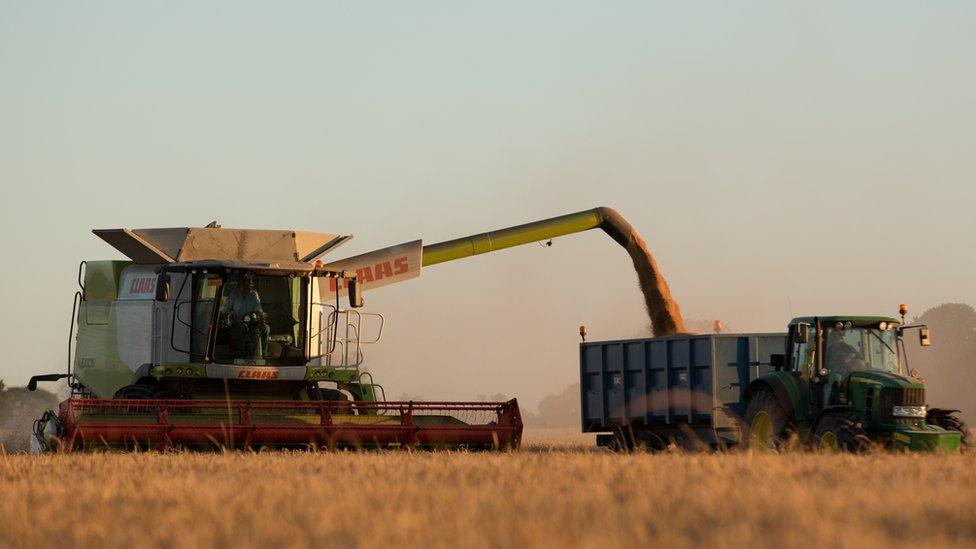Brexit: What do businesses want from Article 50 talks?
- Published
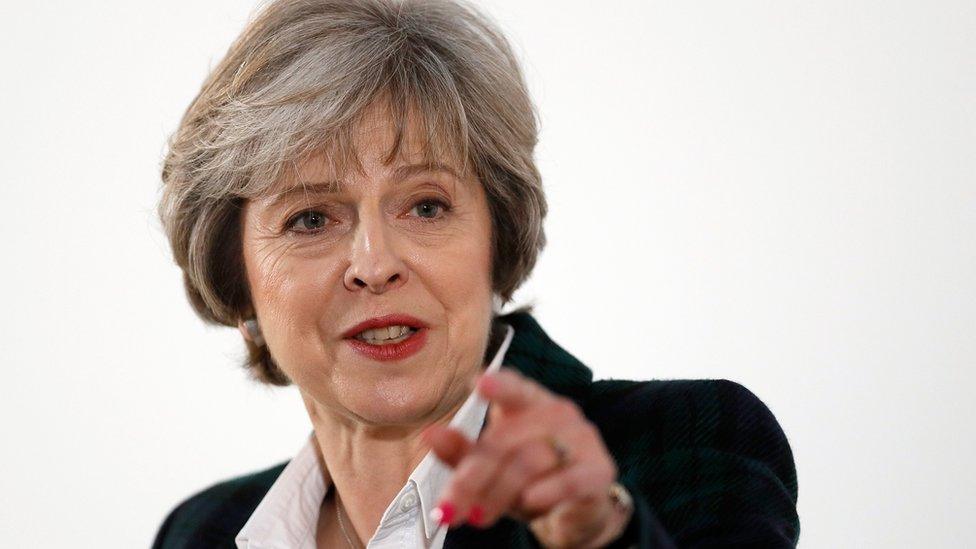
Prime Minister Theresa May has triggered Article 50, formally starting the process of the UK leaving the European Union.
The next two years of negotiations will have far-reaching implications for British businesses and their staff.
The three main areas companies will be watching in the Brexit talks are: migration, customs, and tariffs.
But different firms - often within the same industry - will rank them in different orders of importance.
With so many competing interests, what message is business sending to the government about the Brexit talks?

Business groups: 'Prioritise what's best across the board'
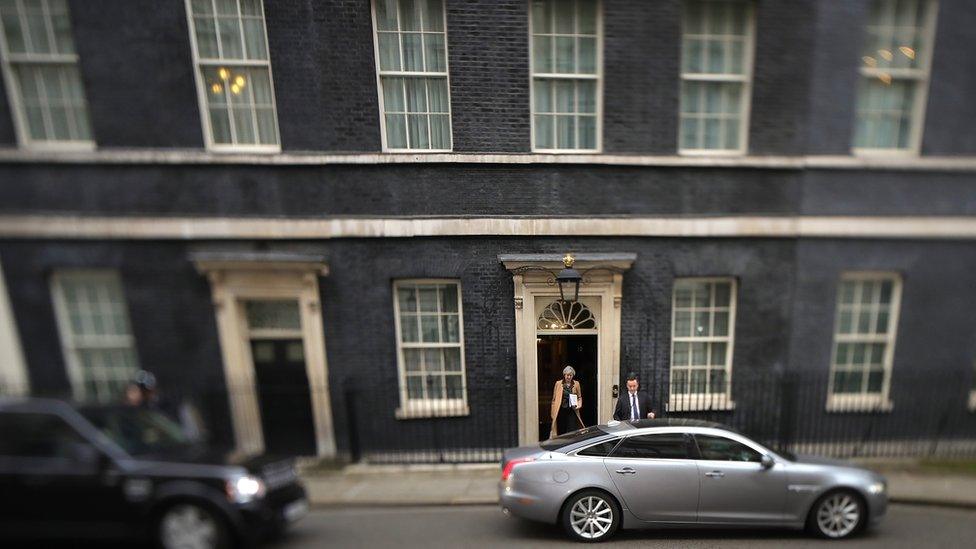
Companies are heavily lobbying the government on Brexit
In many cases, British trade groups said they wanted to hold on to the best possible access to the EU, the UK's biggest trading partner. How far this is possible, though, will be at the crux of the talks.
The prime minister made it clear in January that her plan was for the UK to leave the EU single market and potentially the customs union.
Unless a new trade deal is put in its place, UK companies face tariffs on imports and exports with the EU, tighter customs checks and more controls on EU workers.
Firms need to know as soon as possible about the new trading relationship, says Steven Altmann-Richer, head of EU policy at business lobby group CBI.
If a trade deal isn't possible in the next two years, interim arrangements are essential, he adds.
What are Brexit Britain's trade options?
Firms are not shy of making their views heard by ministers. More than 80% of big businesses are lobbying the government on the Brexit talks, according to a report by law firm Eversheds Sutherland.
But rather than putting some firms ahead of others, ministers must "prioritise what's best for UK business across the board", says Adam Marshall, director general of the British Chambers of Commerce.

Automotive industry: 'Protect priority sector'
Worth £19bn to the UK economy; employs 800,000 workers
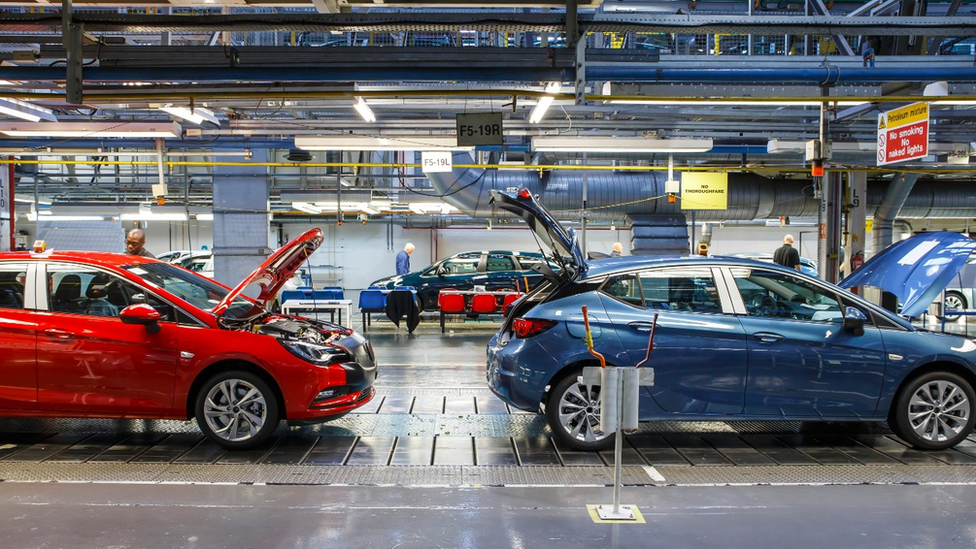
The UK car industry is already in the spotlight because of Peugeot's takeover of Vauxhall
The car industry, though, says it has already been identified as a "priority sector" by the government ahead of the talks.
It points out that Theresa May gave two examples in January of industries she hoped could still enjoy some access to the EU single market after Brexit. They were the export of cars and lorries, and the financial services sector.
Ministers have also had to give "support and assurances" for Nissan's plant in Sunderland, intervene in Peugeot's takeover of Vauxhall, and face repeated questions from the industry about post-Brexit tariffs.
Modern car production is built around just-in-time manufacturing (JIT), which keeps inventory at very low levels and brings in new parts at exactly the point when they are needed. The flipside of JIT is that border delays could wreak havoc on the whole operation.
"This is not just about maintaining tariff-free trade with the EU and other global markets," says Tamzen Isacsson, communications director at automotive trade body SMMT. It also needs to include participation in a customs union to "prevent costly bureaucracy and delays".

Financial services: 'No cliff edge'
Worth £120bn to the UK economy; 1.1 million workers
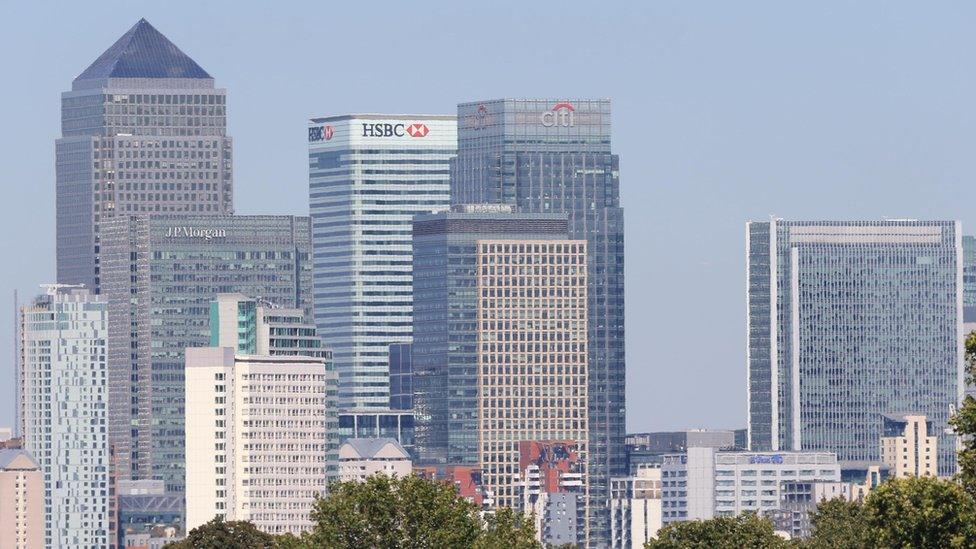
Financial services firms want to be able to make cross-border transactions with little red tape
Like the car industry, banks and financial services firms want a free trade deal with the EU.
But their focus is different. The City of London wants to be able to continue making billions of cross-border transactions without facing extra regulatory hurdles.
Estimates vary, but one widely quoted report suggested that up to 75,000 financial jobs could be lost from the UK leaving the single market. HSBC, Goldman Sachs and UBS are among those already planning to move jobs out of the UK, although others have committed to new offices in London.
The British Bankers' Association (BBA) says it is "essential there are no cliff-edge effects" when the UK leaves the EU.
With so many European firms relying on financing raised in London, it is in neither side's interest for that to disappear overnight, the BBA says.
The prime minister has offered promises there too. Mrs May has said she's aiming for "phased implementation" of the new UK-EU partnership after the two years of Article 50 talks are over.

Food, drink and farming: 'Prioritise food security'
Worth £92bn to the UK economy; 1 million workers
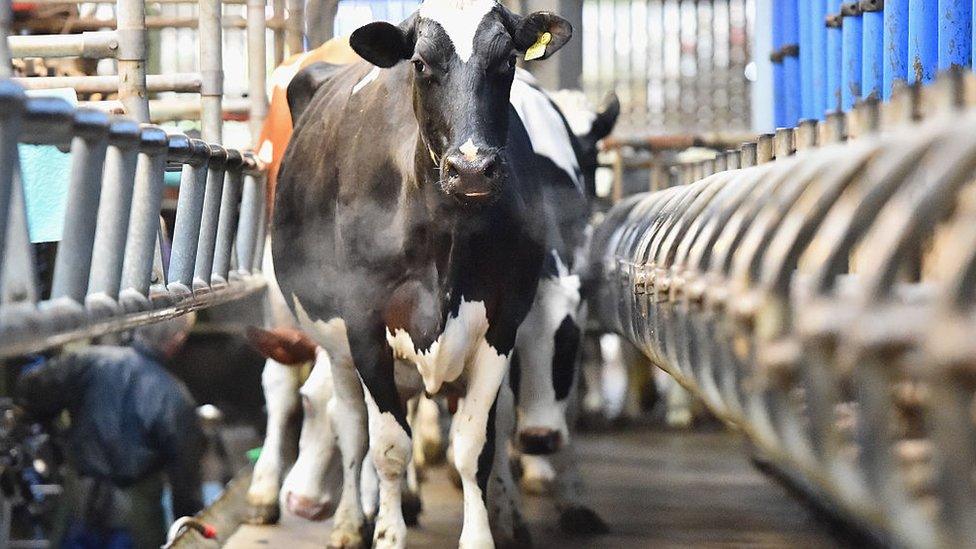
Farming could have the most to gain - and lose - from Brexit
Other industries are pushing for their voice to be heard in the negotiations. Farmers and food and drink manufacturers are calling on Mrs May to "prioritise UK food security".
Food production is the UK's largest manufacturing sector, bigger than the car and aerospace sectors combined, they argue.
They want zero tariffs when UK produce is sold abroad and on imports of ingredients that cannot be grown in the UK. A recent report from Morrisons found that only 52% of food eaten in the UK comes from British farmers.
Agriculture in particular stands to lose or gain a huge amount from Brexit.
More than half of farm incomes come from EU subsidies. If those are not replaced, up to 90% of farms could close down, according to a report by industry analysts, external.
But the handouts are seen as distortive by many farmers. They hope that withdrawing from the EU's Common Agricultural Policy will also come with big opportunities.

Retailers: 'Tariffs could put up prices'
Worth £93bn to the UK economy; 2.8 million workers
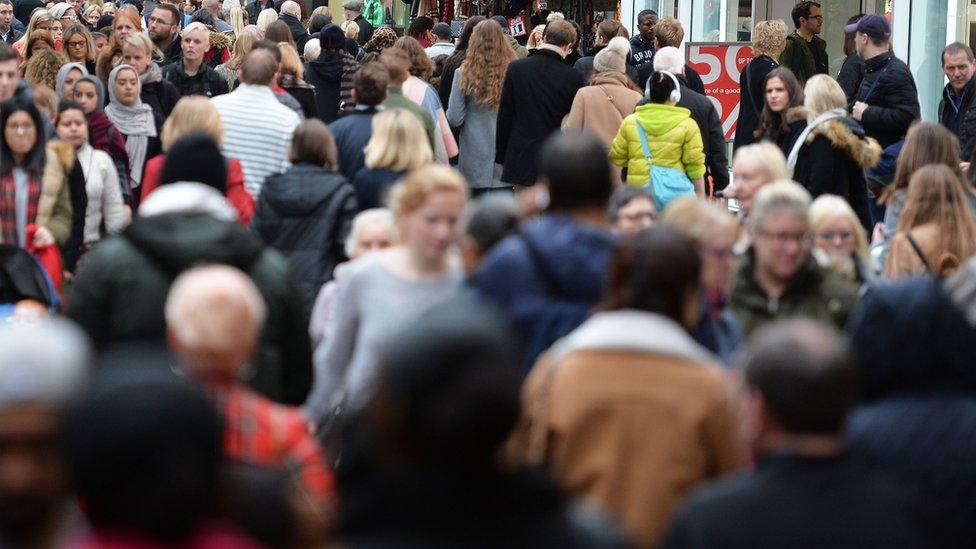
Shoppers face higher prices if the EU imposes tariffs after Brexit
How about the UK's shops? Britain is known as a nation of shopkeepers, and consumer spending continues to fuel the economy.
The "number one priority" for retailers in the Brexit talks is no new tariffs on EU goods, the British Retail Consortium (BRC) says. Otherwise, shoppers could see their prices go up.
"There is a limit to the amount of increased cost retailers can absorb," a BRC spokeswoman says. Shops are already dealing with business rates, the National Living Wage and higher import costs due to the weaker pound.
Migration is an issue too. Retailers employ about 120,000 EU nationals, the BRC says. They want those workers - from shelf stackers to executives - given a "fair deal".

Pharmaceuticals: 'Protect rich British heritage'
Worth £16bn to the UK economy; 62,000 workers
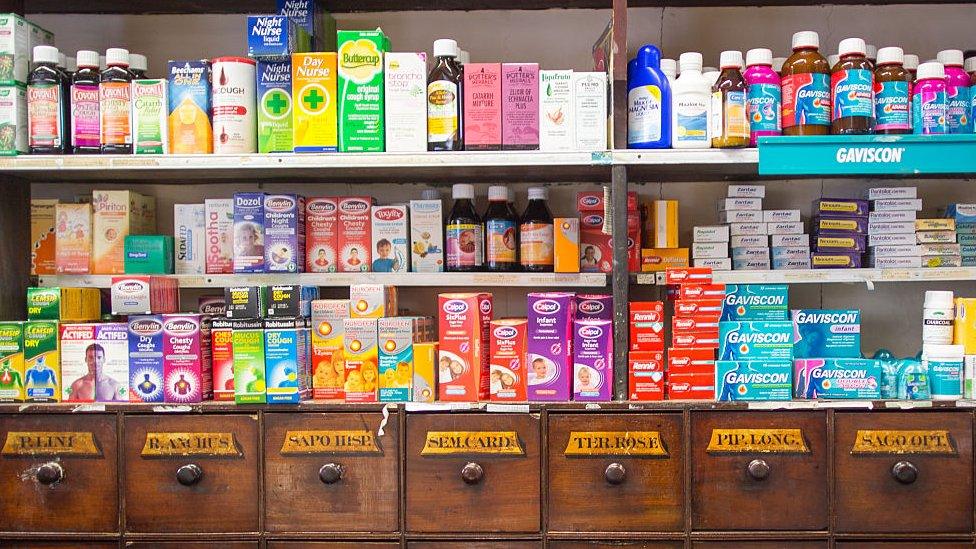
The development and manufacture of drugs is a major British industry
For pharmaceutical firms - another major British industry - the concerns are less about tariffs and more to do with regulations.
Currently, drugs tested in the EU can then be made and sold in the UK and vice versa. To protect the sector's "rich heritage", regulatory co-operation needs to continue, according to the Association of the British Pharmaceutical Industry (ABPI).
The industry - which accounts for one in five of the best-selling prescription drugs worldwide - is "confident" Mrs May understands its priorities for the talks.
Dr Virginia Acha, the ABPI's director of medical research, says: "The prime minister has said that making the UK 'the best place for science and innovation' is one of her key objectives for leaving the EU."

Airlines and the aviation industry: 'Full access to EU market'
Worth £52bn to the UK economy; 945,000 workers
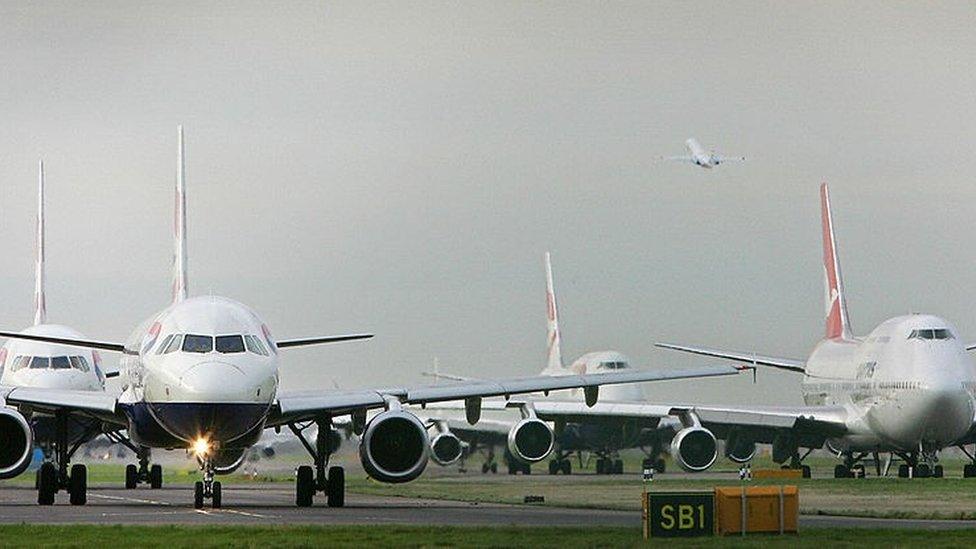
A new aviation deal will need to be struck with the EU
Airlines, by their very nature, are at the frontline of tighter borders and access to the EU. The industry has boomed, in part thanks to the aviation version of the EU's single market.
Helped by the European Common Aviation Area, more than 130 million passengers fly between the UK and the rest of the EU every year, almost double the amount from 20 years ago.
Airlines such as EasyJet and British Airways are keen for the UK to still have some access to it, but how that will work once the UK leaves the EU single market is unclear.
Tim Alderslade of Airlines UK says top of the wish-list is "full access to each other's markets for airlines", but also "no restrictions on access between the EU and third countries, including the United States".
Aviation lawyers say a deal will have to be struck because the UK cannot fall back on international trade rules. However, they add that existing agreements with India, Vietnam and Australia could provide a template.

Small and medium sized enterprises: 'Access to the right talent'
Account for 99% of businesses in every main industry sector; 15.7 million workers
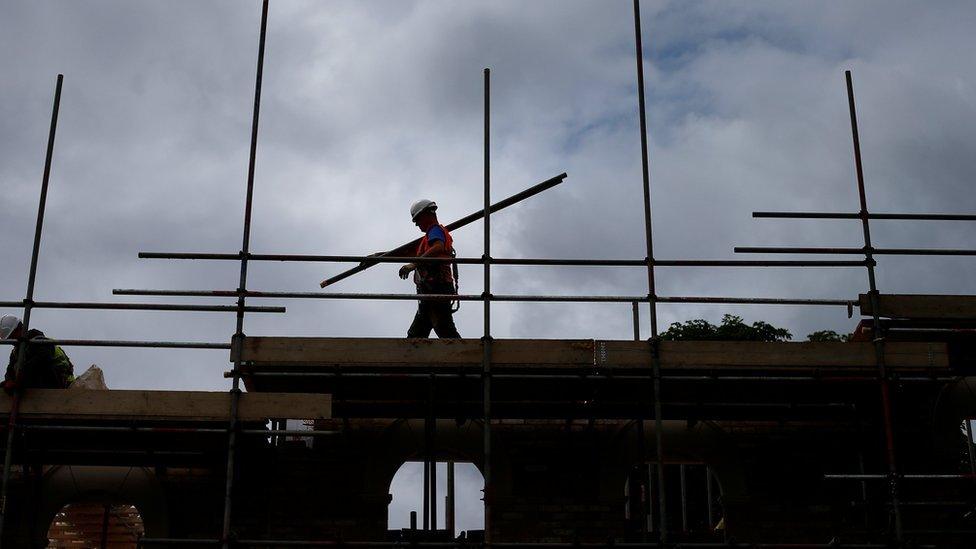
A fifth of small businesses employ workers from other EU countries, according to the FSB
As with big companies, small-to-medium sized businesses want clarity from the Brexit talks.
They want to "make sure that easy access to trade and the right talent feature prominently in the forthcoming negotiations," says Mike Cherry, chairman of the Federation of Small Businesses (FSB).
The EU is by far the biggest trading partner for smaller firms. The single market accounts for 92% of small business exports and 85% of imports, according to the FSB.
Ministers need to remember these thousands of small businesses, not just the big multinationals at the top of the supply chain, it says.
But with so many conflicting and competing interests, that might be easier said than done.
Economic value of each sector measured by gross value added to the UK economy. Data provided by industry associations.
- Published24 March 2017
- Published8 March 2017
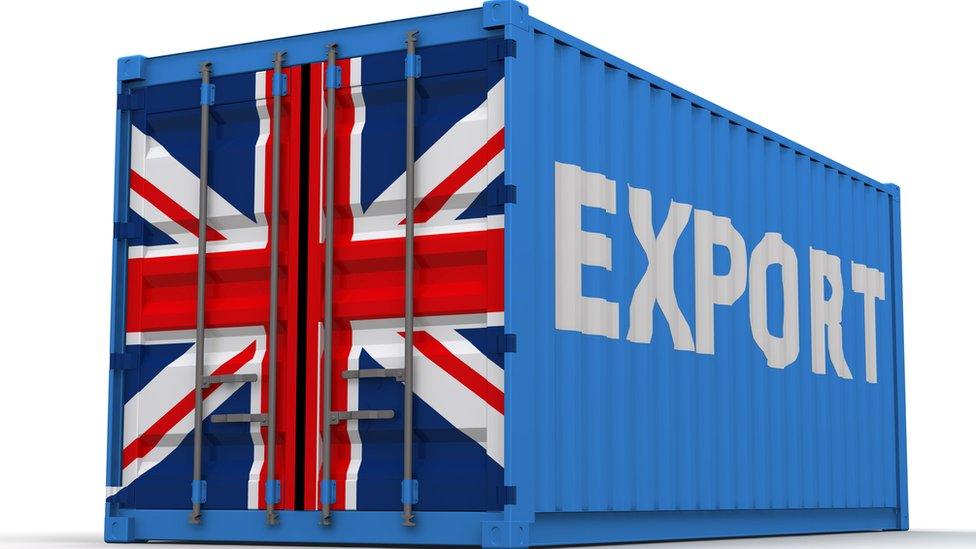
- Published5 January 2017
